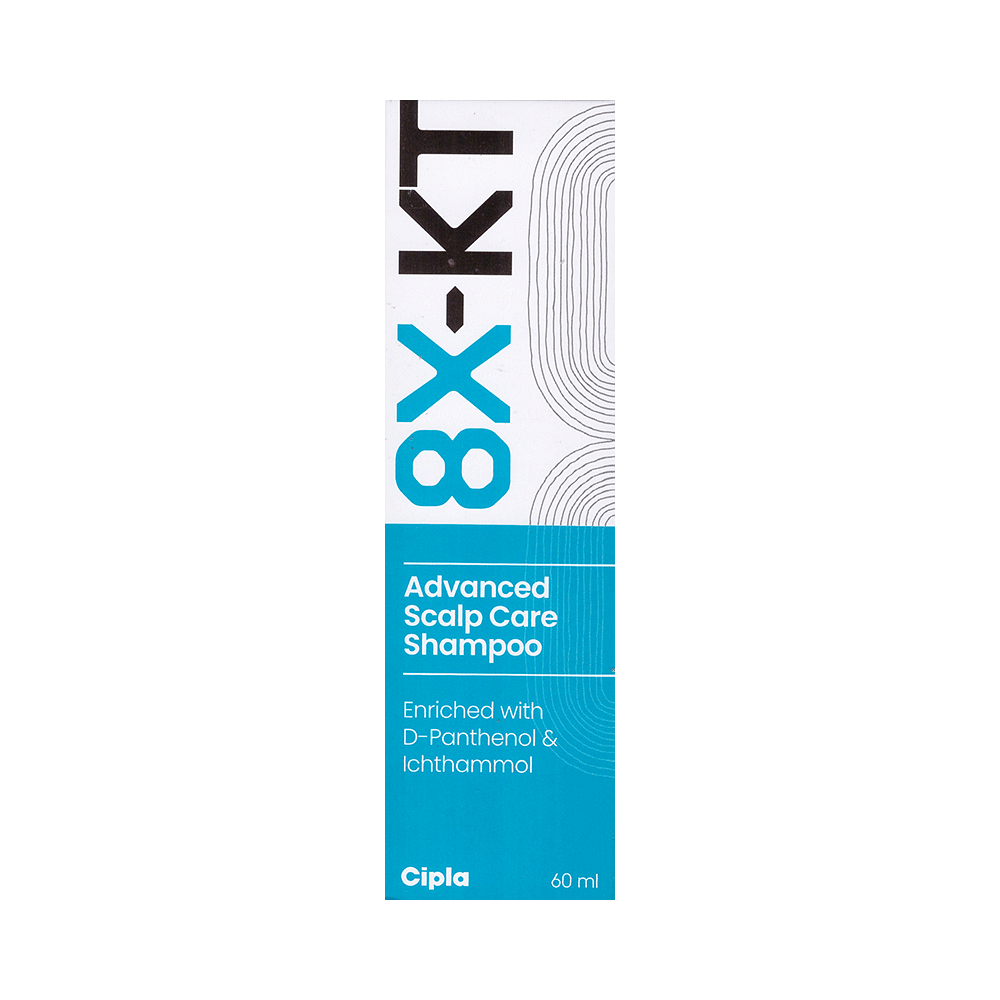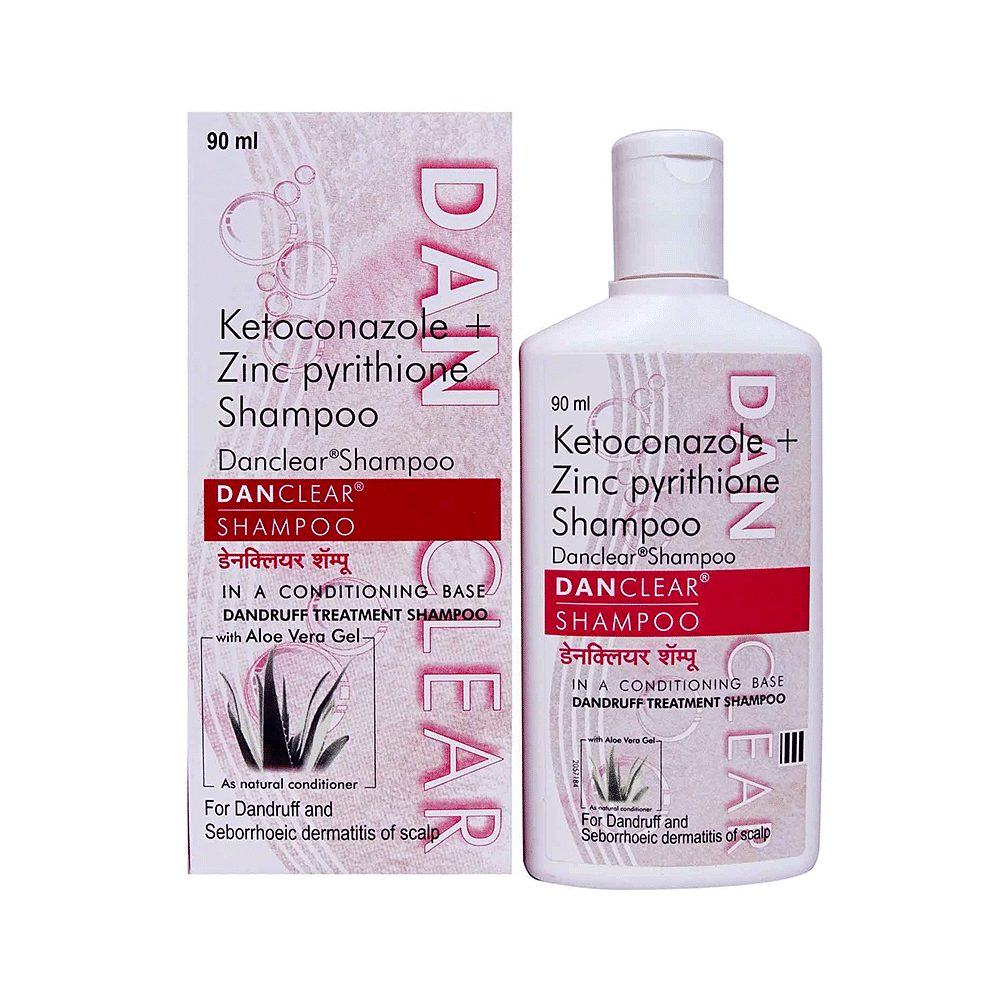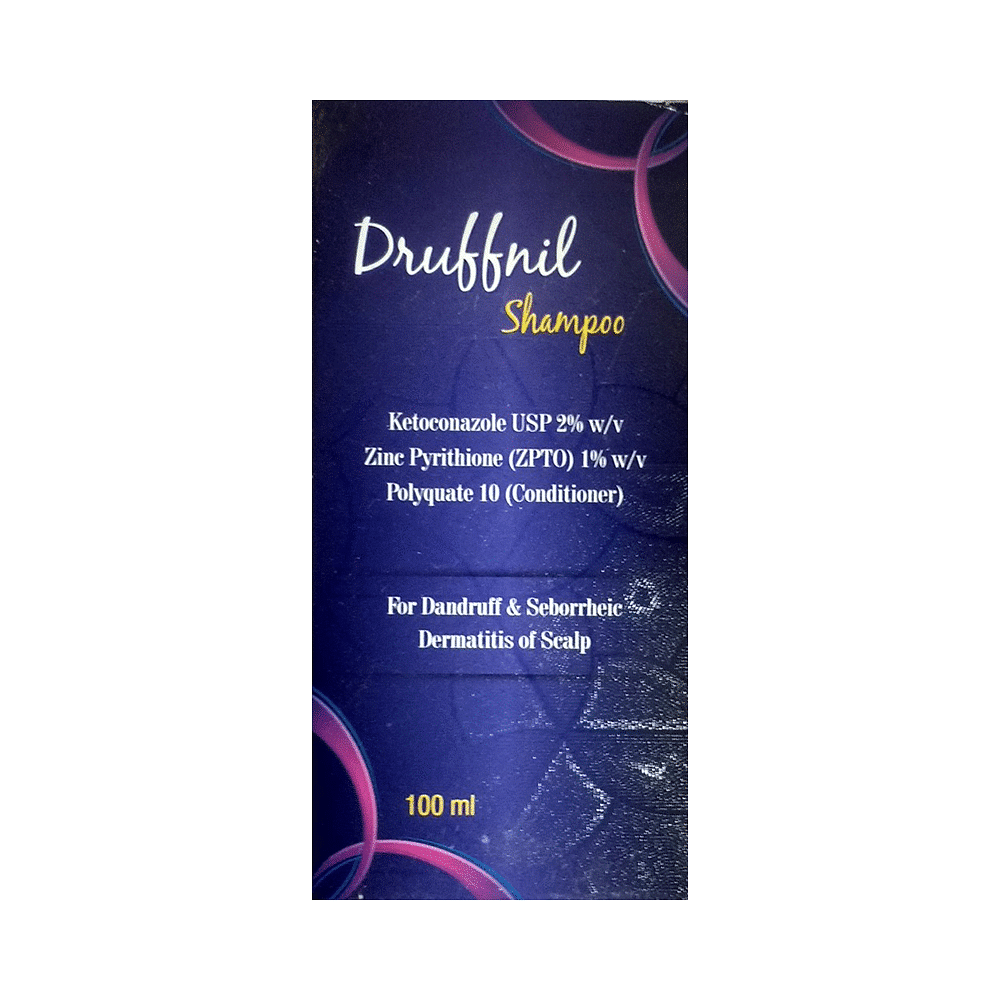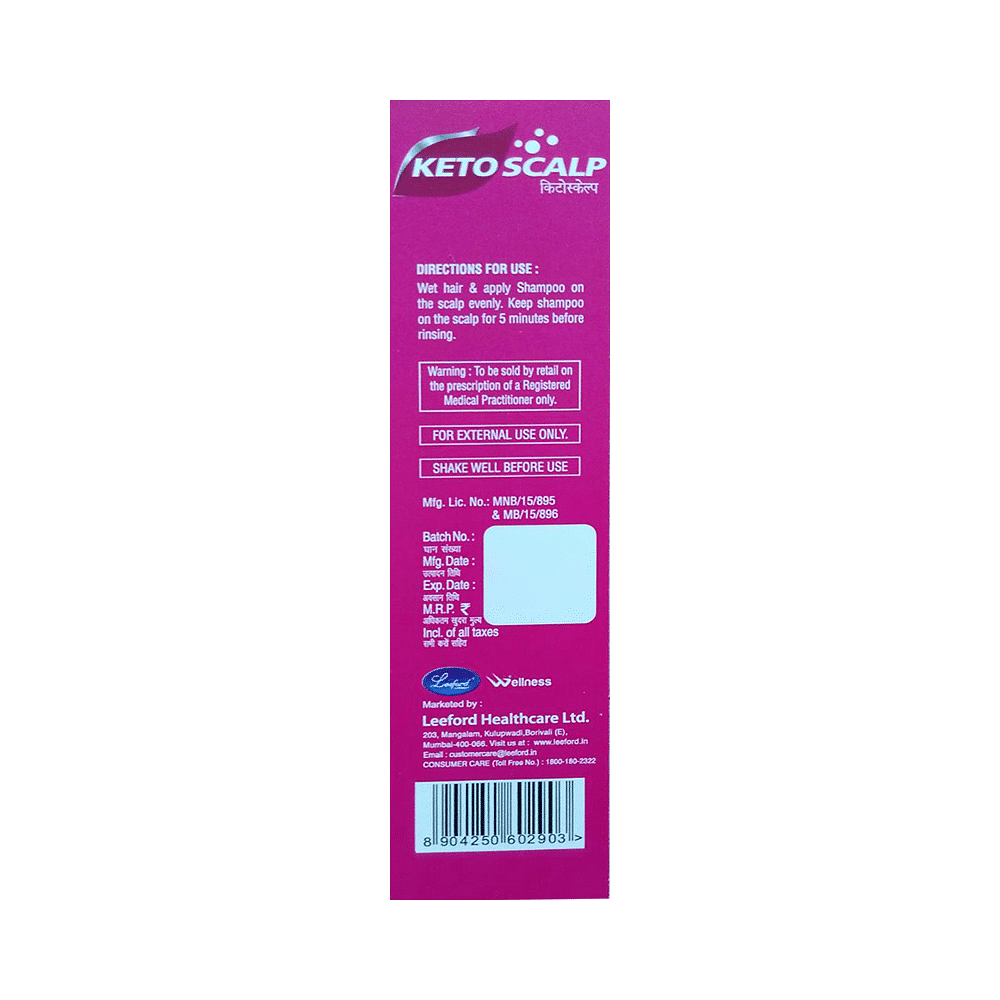
Ketogud Shampoo
Manufacturer
Scot Derma Private Limited
Salt Composition
Ketoconazole (2% w/v) + Zinc pyrithione (1% w/v)
Key Information
Short Description
Ketogud Shampoo is a combination of two antifungal medicines that effectively treat dandruff, killing the fungi that cause the infection and relieving itching and irritation.
Dosage Form
Shampoo
Introduction
Ketogud Shampoo is only meant for external use and should be used as advised by your doctor. This medicine should be used regularly to get the most benefit from it. Do not use more than you need, as it will not clear your condition faster and may only increase the side effects. Make sure not to leave it on the scalp for more than 5 minutes. If it gets into your eyes, nose, or mouth, rinse it with water. Ketogud Shampoo is usually safe, however, it may cause burning, irritation, itching, and redness at the application site. These side effects are usually mild and self-limiting. Serious side effects are rare. It is not likely that other medicines you take by mouth or injection will affect the way Ketogud Shampoo works, but talk to your doctor before using it if you have recently used another medicine for dandruff. The medicine is not recommended for pregnant women. Pregnant and breastfeeding mothers should consult their doctors before using Ketogud Shampoo.
Directions for Use
Use it as advised by your doctor or check the label for directions before use.
Safety Information
Side Effects
No common side effects listed
How it works
Ketogud Shampoo is a combination of two antifungal medicines: Ketoconazole and Zinc pyrithione. It works by destroying the cell membrane of fungi that cause dandruff.
Quick Tips
Leave the shampoo on for three to five minutes before rinsing. Take care to avoid getting Ketogud Shampoo in your eyes. If accidental exposure occurs, rinse immediately with plenty of water. Your usual shampoo can be used as necessary between treatments with Ketogud Shampoo. Do not use this medicine more often or for longer than advised by your doctor. Avoid getting it in the eyes, mouth, or nose. Rinse with cold water if you accidentally get it in these areas. Stop using Ketogud Shampoo and inform your doctor if you notice any irritation or any other skin infection. Inform your doctor if the treated skin area does not improve after 2-4 weeks of treatment.
Related Medicines

8X-KT Shampoo

Danclear Shampoo

Druffnil Shampoo

Ketoscalp Shampoo

Ketamide-AD Shampoo

Ketromax Shampoo

Tenozol Shampoo

Kepozig Shampoo

Keorash Shampoo

Kitolize Shampoo
Frequently asked questions
How often can I use Ketogud Shampoo as directed by my doctor?
For optimal results and to avoid any potential issues, use Ketogud Shampoo for the recommended duration specified by your healthcare provider.
Is regular use of Ketogud Shampoo likely to lead to hair loss?
No, Ketogud Shampoo is specifically designed to treat dandruff and reduce the risk of hair loss associated with it. Regular usage will help maintain a healthy scalp and promote overall hair health.
What important information should I share with my doctor before using Ketogud Shampoo?
Before starting treatment, inform your doctor about any known allergies or sensitivities you may have to medications or other substances.
How long should I leave Ketogud Shampoo on my scalp to avoid irritation?
To prevent potential skin or scalp irritation, do not leave the shampoo in contact with your hair or skin for longer than the recommended time specified on the product label or by your healthcare provider.
Will dandruff lead to baldness if left untreated?
Dandruff itself does not cause baldness. However, severe dandruff and excessive scratching can lead to temporary hair loss due to scalp trauma. If you experience persistent hair loss, consult with your doctor for further guidance.
How should I use Ketogud Shampoo if my hair is dry and brittle?
While Ketogud Shampoo is designed for scalp treatment, using it as a 10-minute scalp treatment followed by regular shampoo and conditioner may help. However, for optimal results, consider consulting with your doctor or a dermatologist for personalized advice.
Can stress contribute to the development of dandruff?
Although stress is not a direct cause of dandruff, it can trigger various scalp conditions, including dandruff. Maintaining good scalp health through regular care and consultation with a healthcare professional is essential.


